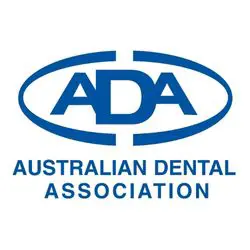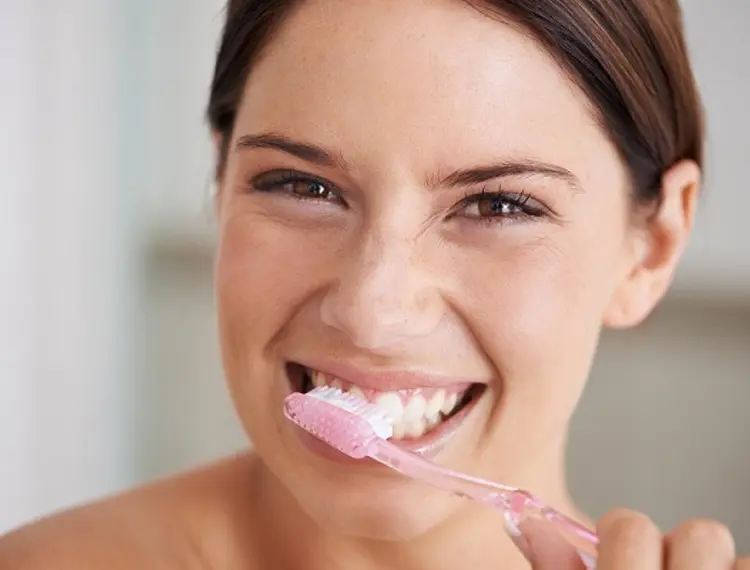
Key messages
- The Australian Dental Association recommends brushing 2 times every day, for 2 minutes each time.
- Use a small amount of toothpaste only. Older children and adults should use a pea-size amount of paste and children under 6 years should use a smear of paste.
- Pressing too hard can damage your teeth and wear away your toothbrush bristles.
- Replace your toothbrush every 3 months.
- No matter how well you brush, your toothbrush bristles cannot reach the spaces between your teeth.
Brushing your teeth every day is an important part of keeping your teeth, mouth and whole body healthy. The Australian Dental Association recommends brushing two times every day, for 2 minutes each time.
Why should I brush my teeth?
Plaque is a sticky layer of bacteria that forms on the surface of the teeth every day. Brushing helps to remove as much plaque as possible. It can make the teeth ‘feel fuzzy’ when you have not brushed them.
Removing the plaque and bacteria everyday helps to keep the teeth and gums healthy. It also helps to prevent gum disease and tooth decay.
Bacteria also builds up on the surface of the tongue. You may like to add brushing your tongue to your oral hygiene routine.
Toothbrushing basics
What do I use?
- A manual or electric toothbrush
- A brush with soft bristles
- Fluoride toothpaste
When do I brush?
Brush your teeth two times every day. Brush once in the morning and again at night for two minutes each time. It is best not to have food or drink after brushing your teeth before bed.
How long do I brush for?
Brush for two minutes both in the morning and at night.
Brushing the teeth in each corner of the mouth for 30 seconds is a good way to split up your brushing routine. Four corners, each brushed for 30 seconds will equal 2 minutes of brushing.
Some ways to keep track of the two-minute period is to use a sand timer, phone timer, play a song or use a toothbrushing phone app. Some powered toothbrushes have built-in timers that can help you to keep track of time when brushing.
How much toothpaste do I use?
Toothpaste is an important part of toothbrushing. They have ingredients that can help to protect your teeth. Different toothpastes are recommended for different ages.
Children over 3 and adults are recommended to squeeze a 'pea-sized' amount of toothpaste on the toothbrush.
Children aged 18 months to 3 years are recommended to only use a smear of toothpaste. Pushing the paste into the brush can help keep it in place when brushing your child’s teeth.
Find about more about toothpaste by reading our tips for choosing toothpaste and toothpaste ingredients.
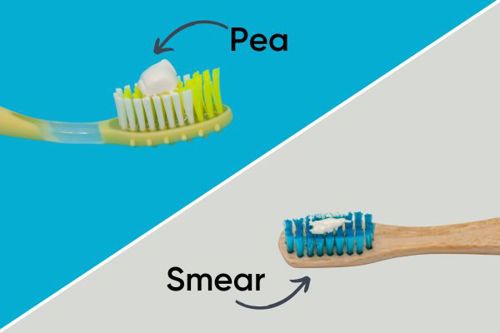
How often do I replace my toothbrush?
Replace your toothbrush every 3 months.
Be careful not to press too hard when brushing. This can make the toothbrush bristles wear quicker. The bristles may spread apart and sit outside the base of the toothbrush. Toothbrush bristles that are spread apart can stop you from cleaning your teeth well. Some electric toothbrushes have a built-in pressure-sensor that tell you when you are pressing too hard when brushing.
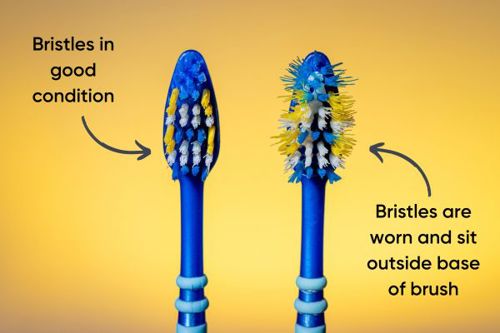
Should I use an electric or manual toothbrush?
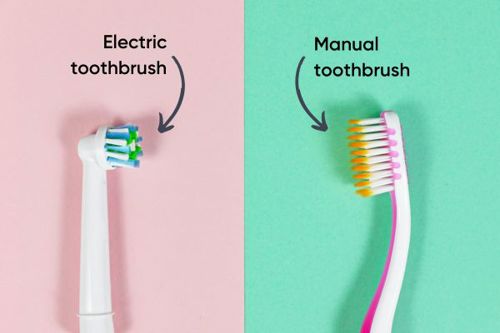
Scientific studies show that there are benefits of using electric toothbrushes compared to manual toothbrushes. They can remove bacteria and decrease gum inflammation more than manual toothbrushes both in the short and long term.
However, how well any toothbrush cleans your teeth depends on how well you use it.
Your dentist may recommend using an electric toothbrush if you:
- have trouble holding and controlling a manual toothbrush
- have braces
- have gum disease.
Read about methods for brushing using:
What else?
Cleaning between your teeth
No matter how well you brush, the toothbrush bristles cannot reach the spaces in between your teeth. Cleaning between your teeth will remove food and bacteria that your toothbrush may miss. Not cleaning these spaces can cause gum disease or increase your risk of tooth decay.
